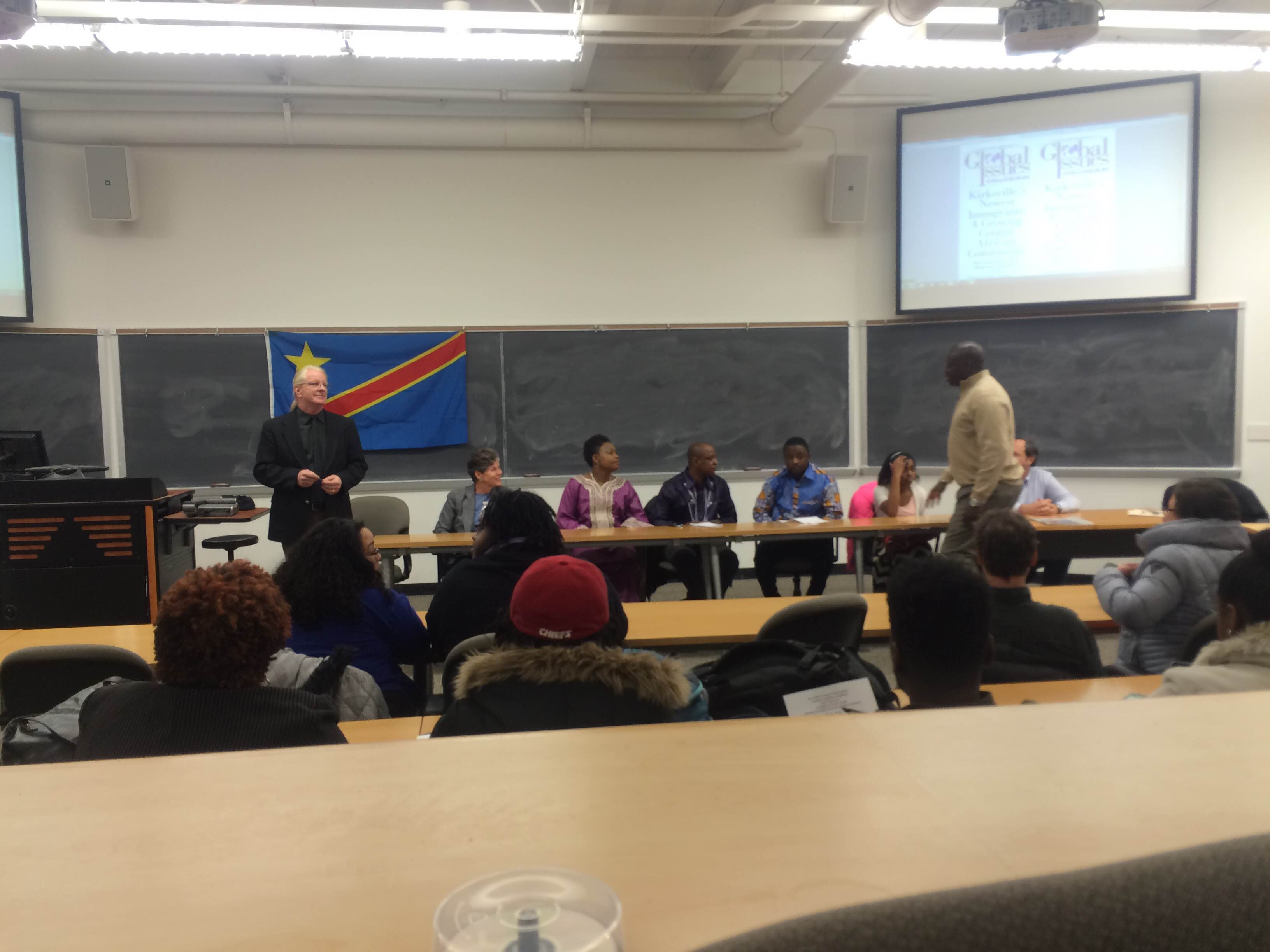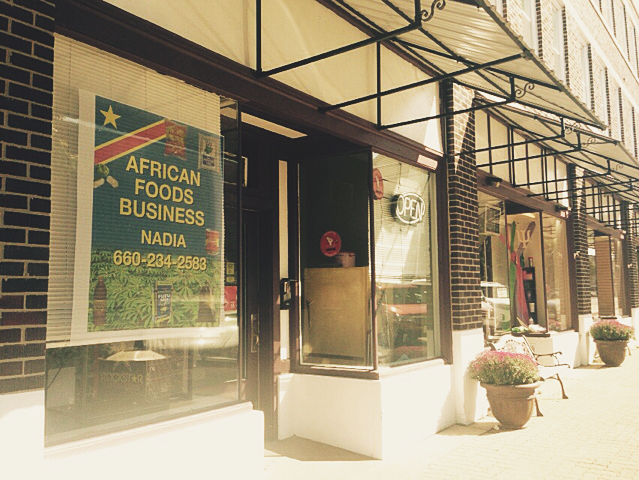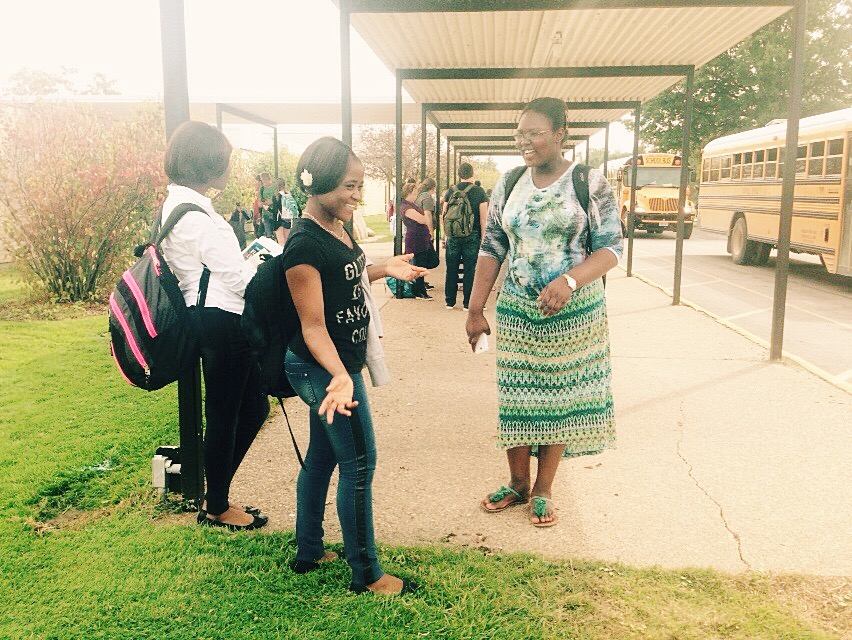
Members of Kirksville’s Congolese community joined Truman faculty in a presentation earlier this month over the origins and experiences of the recently formed Central African community.
The presentation was part of the Global Issues Colloquium series. French professor Ron Manning, political science professor John Quinn and linguistics professor Sally Cook began the evening by giving background on the Democratic Republic of the Congo, with Manning acting as the moderator, Quinn explaining the history of the DRC and Cook expanding on the languages of the DRC’s residents. Five members of the immigrant community, Richard, Celeste and Jenny Yampanya, and Henoc Kitenge then spoke individually of their experiences as immigrants in Kirksville while French professor Sana Camara translated their responses from French to English. The evening ended with various questions posed by audience members.
Immigrants in Transition
A majority of the approximately 50 families in this community have been in Kirksville for a year or more. The diversity immigrant visa, an international visa lottery meant to encourage immigration from countries with lower immigration percentage rates to the U.S., enabled the Congolese to move to America. Upon winning the lottery, they received a permanent resident visa that is valid for 10 years. See below for diversity immigrant data from the DRC.
Richard Yampanya was the first Congolese to come to Kirksville, and friends and family subsequently followed him here. Charles Nkuanga Dida, one of the Congolese residents in Kirkville, discusses his experience immigrating to the U.S through the diversity immigrant visa.
Bebey Anderson Vantoto, another Congolese resident in Kirksville, says he was drawn specifically to Kirksville for a variety of characteristics.
“We were reassured that Kirksville is a good place, calm, without crime, [and] a favorable location to raise kids,” Vantoto says. [Also, that it had] good schools, a good university, and we could find jobs.”

Residents of DRC speak at least one of the 200 local languages in the DRC, plus French, the official language, Cook says. The language barrier poses issues in everyday life, says Guy Tumilali, a Congolese resident in Kirksville.
“If you have a sick child, you have to call the hospital, you have to call the school, you have bills to pay,” Tumilali says. “It’s especially a problem because over the phone is not face to face.”
The lack of French translators or French-translated text in public spaces directly affects the Congolese community, since many are still in the process of perfecting their English, Vantoto says.
“We really want to learn English,” Vantoto says. “If we don’t know the language, we can’t teach our kids. But in certain extreme cases, special cases, like at the bank or with the police, if there are translators, that would help us to do things correctly.”
The Congolese want to appeal these problems to city officials if they have opportunity to meet them, says Dida.
The language difficulties also carry over to the workplace. Tumilali and Vantoto hold advanced degrees in physics and industrial engineering, respectively. But because they have yet to perfect their English, they haven’t yet been able to find work in the domain of their studies, Tumilali and Vantoto say. They currently both work at the Farmland Foods factory in Milan, MO.
Dida also has a doctorate in French linguistics, but temporarily travels back to the DRC to go back to teaching French at a university in Kinshasa. All three of the men have experience in teaching their degree subject matter and want to find jobs in their domaine because they are passionate about teaching, Tumilali says.

Community Support
Community members like Cathy Kelly, ESL Kirksville School District Teacher, have reached out to aid the Congolese community in their transition to American life. Kelly organizes volunteers to tutor the approximately 40 Congolese students in the Kirksville School District.
In addition to carrying out her duties at the Kirksville schools, Kelly has also become an unofficial liaison between the Congolese families and the rest of the community. The extra help she gives them outside of her job is not necessary, but she continue to do so regardless, Kelly says.
“[I help them] because they are in need,” Kelly says. “I feel like I can help them, and I would like to help them because I cannot imagine being in their situation, going to a completely new country and not knowing anything. I love doing what I do.”
Vantoto discusses the influence of Kelly’s assistance on his children’s schoolwork.
Manning, the Edwin C. Carpenter Language Learning Center director at Truman, also organizes several support groups for the Congolese community.
“One woman at the Kirksville [Area] Technical Center has now been giving English lessons to them free of charge three days a week thanks to a grant,” Manning says. “So there is about six to eight hours of ESL lessons available in Kirksville for these folks.”
Beyond organized groups, many Congolese feel supported by Kirksville community members in their day-to-day lives.
“It’s not just the Congolese community who helps us, it’s also the Americans who help us and who talk to us at church and at school,” Vantoto says. “People are very nice. They approach you, they ask how you came here, if you have any problems, they ask you questions, and you can say, ‘Yes, I have a problem with getting a ride to church.’ We have found people to be very great.”
DRC Immigrants in Diversity Immigrant Category
Data on the number of immigrants using the Diversity Visa from the Democratic Republic of the Congo from 2006-2014, according to the U.S. State Department.| Year | Number of Diversity Immigrants from the DRC |
|---|---|
| 2005 | 296 |
| 2006 | 354 |
| 2007 | 317 |
| 2008 | 511 |
| 2009 | 601 |
| 2010 | 924 |
| 2011 | 1,522 |
| 2012 | 1,221 |
| 2013 | 2,235 |
| 2014 | 2,442 |
